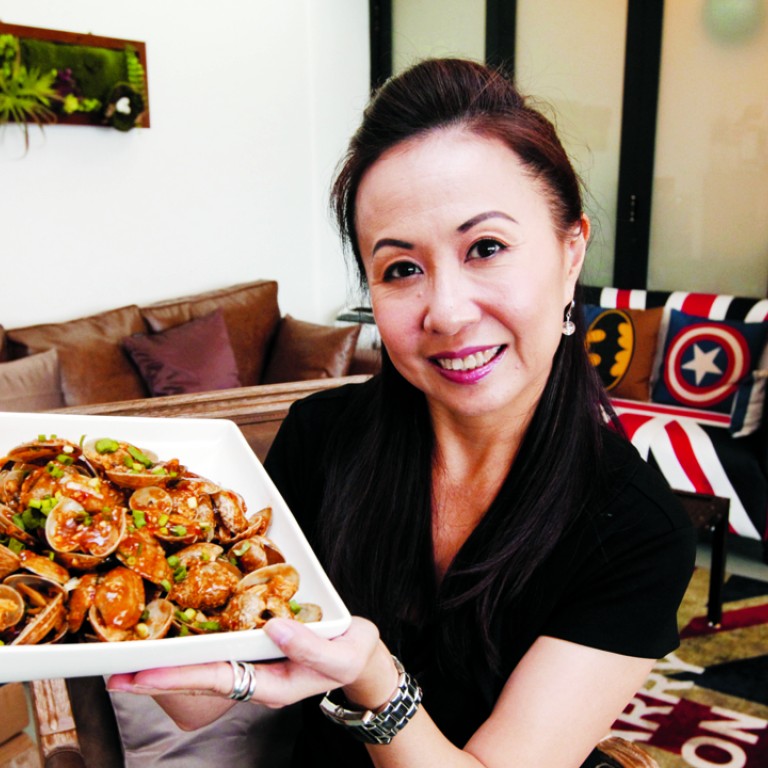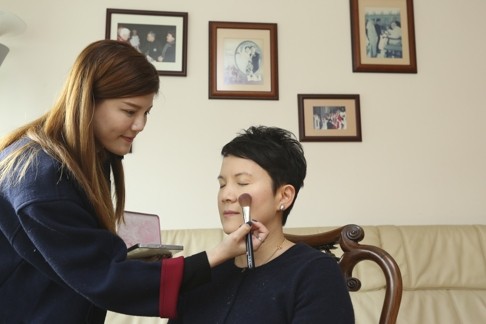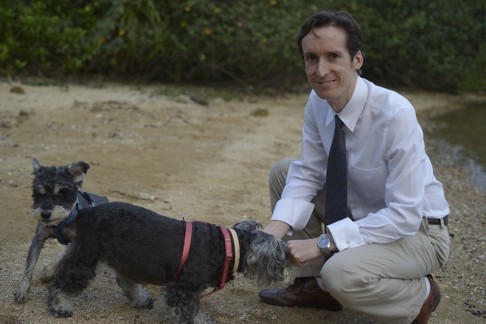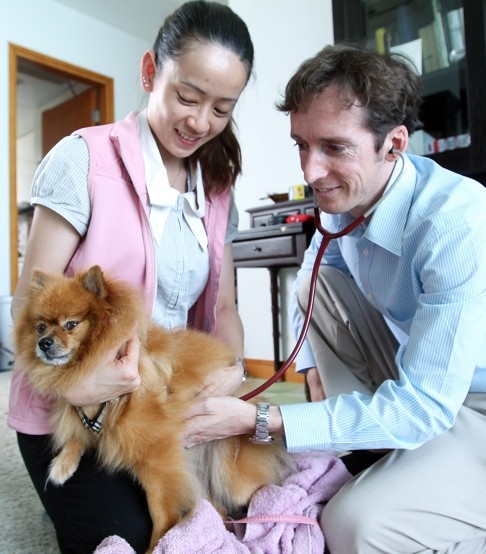
Hong Kong’s dial-a-chefs and other small businesses who serve you at home
Business model is a win-win, with companies saving on rent and customers enjoying the convenience of home service, be it to cook your dinner, style your hair, make you up or look after your pet
Once her client approves the menu, chef Stella Chan Wing-yan and her business partner Cheng Siu-po get to work, placing special orders with seafood suppliers and shopping for other choice ingredients.
However, instead of prepping in a professional kitchen, Chan does the cooking in private homes.
In Hong Kong, this in-home model is particularly attractive to small businesses – after all, it substantially reduces spending on rent and other overheads.
A former PR executive with more than 20 years’ experience, Chan loves to cook and quit her job to take it up full-time.
“I wouldn’t like to open a restaurant, as it would incur very hefty costs, especially rent. Landlords don’t care if you make a profit, they just keep increasing the rent every year. If they know you’re making a profit, the rent would even be higher,” she says.
“Besides rent, shop renovations and wages, there are many other extra costs involved in running a restaurant. You need to stock up enough ingredients to give your customers a good choice.
“My menu is tailor-made and I only buy the ingredients I will use. I also ask customers to pay a deposit. This helps me control the budget.”

Her clients include families living in ordinary apartments as well as wealthy people in luxurious houses.
“Savouring delicacies is a pleasure which has nothing to do with your wealth or background,” Chan says, citing the Chinese proverb “To the people, heaven is being able to eat well.”
Unlike in a professional restaurant, most households are only equipped with basic cooking facilities. So clients are asked to send photos of their kitchen and provide information about the set-up.
Working in a kitchen with an induction cooker, for instance, would mean her having to bring along a flat-bottomed wok. “Some customers don’t have enough dishes to serve a meal in or they may not have steamers. Then we take along our own dishes,” Chan says.
When she launched her business, Chan had enough utensils. Without physical premises the biggest challenge was to build a client base. So she applied her marketing skills and filled her Facebook page with photos of her delectable creations.
“Customers also come to me through word of mouth – my friends and people who have tried my dishes,” Chan says.
Make-up artist and hair stylist Yeung On-on visits customers’ homes or event venues. She thinks it is a good way for people without the funds for a bricks-and-mortar store to start their businesses.
Like Chan, Yeung set up a Facebook page to publicise her service when she started two years ago, posting photos of her work on models.
“It was very quiet at first as people did not know the quality of my services,” she recalls.
But within six months, she was making enough to cover her expenses.
“My investment was mostly for skincare products, hairstyling equipment, cosmetics and make-up brushes; that cost me about HK$50,000,” she says.

Yeung goes to each booking with a large suitcase filled with make-up and hair-styling items. If she works at a wedding, it usually means another two cases of accessories.
“I have to follow the bride the whole day – from the time she leaves her maternal home in the morning to the marriage registry at noon until the end of the banquet at night. It can be exhausting.”
One young couple even paid for her to travel to Japan for their wedding.
“I am still young and don’t mind running around. But on one occasion I was so busy Icould not even squeeze in time for a meal until very late. I was so hungry, I almost fainted,” Yeung recalls.
By partnering with an established company, pet groomer Basil Wong Pak-yiu did not have to rely on social media for publicity when he started out a year ago. The Pet Pet Group, which provides a range of animal care services, refers clients to him for a commission.
However, the home setting can present challenges.
“I don’t have a proper grooming table and [clients] usually arrange to have the work done in the toilet. So I put the dog on the lid of the toilet seat. Sometimes the space is so tiny there isn’t enough room for me to move around to trim the animal’s hair.”

Matthew Murdoch, who set up the Homevet service two years ago, was less concerned with keeping overheads low.
“Rent was not my major consideration when I launched the business. I had the idea when I practised in the UK [between 2000 and 2005] and they already had the service there,” he says.
One of the few veterinarians in town who makes house calls, Murdoch found that news of the service spread quickly.
“The good thing about this service is anybody who is a pet owner knows it is always stressful to take animal to clinics … some puppies are OK, but not big dogs or cats or nervous mongrels. A lot of [business] is word of mouth,” he says.
Of course, there are limitations to such services: anaesthesia and surgery are rarely done in the home setting.
“It is not safe to sedate pets at home, they have to be transferred to a pet clinic with all the proper equipment,” Murdoch says.
Although he might occasionally carry out operations in the clinics of fellow veterinarians, Murdoch says his role is more like a general practitioner who carries out regular medical check-ups, gives vaccinations and aftercare for pets recovering from surgery.
“Just like humans, animals who are very ill have to go to hospital for treatment. Some problems I can treat at home, such as skin diseases and stomach problems. We see a lot of older pets as it is not easy for them to travel a long way to the clinic,” he adds.

Murdoch’s business has grown – he and a part-time vet are supported by two part-time nurses, and a full-time van driver, who look in on their furry patients seven days a week.
“It is time consuming to travel to different places within a day. Yesterday I visited nine families in Hong Kong Island, Ho Man Tin, Kowloon Tong to Yuen Long, Fanling, Sai Kung and Sha Tin,” Murdoch says.

Chan’s income has halved since she gave up PR to became a full-time chef, but she finds the work so satisfying it makes up for the shortfall.
“I want to maintain the quality of my dishes ... and I get immediate feedback from my customers when I cook for them. If I was running a restaurant, I would be very busy serving many tables. I don’t like mass production because it would undermine the quality of my cooking,” Chan says.
Wong has a similar mindset.
“I enjoy grooming one pet at a time. That may take me about three hours from preparation to cleaning up. So I cannot do more than three households a day. If I opened a grooming parlour and had to run the numbers, I would be under pressure to do as much business as possible and groom as many pets as I can. But I would not enjoy that factory-like operation.”
